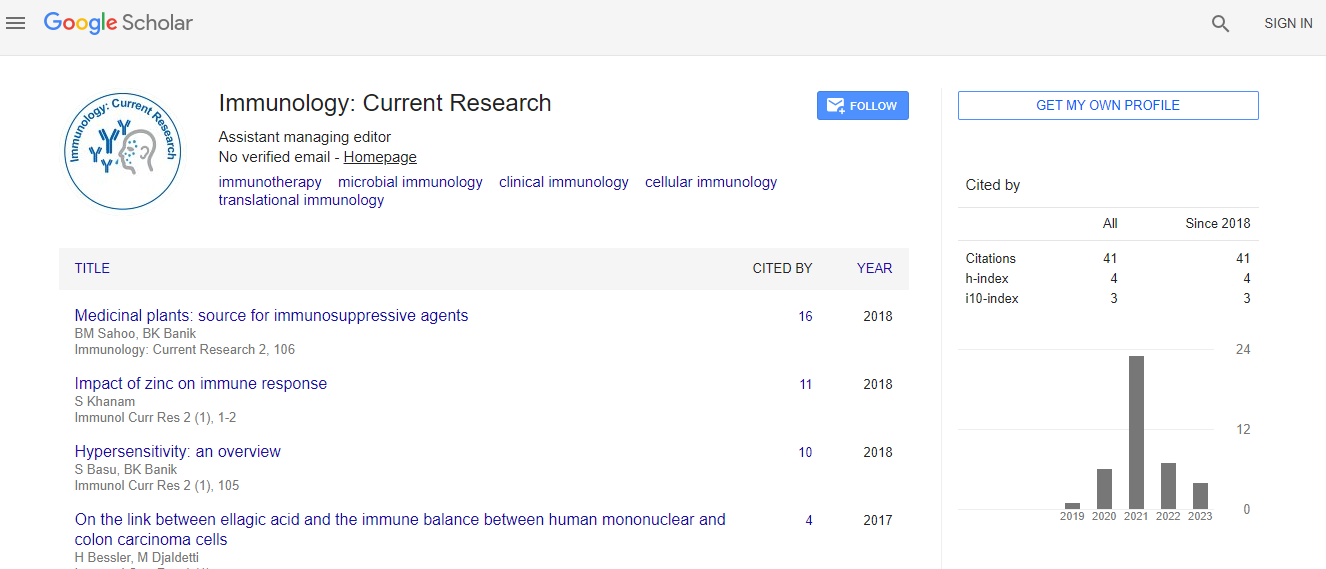Exploring the Role of Macrophages in Immune Response and Inflammation: Mechanisms and Therapeutic Implications
*Corresponding Author: Miami Chemung, Department of Radiation Oncology, The University of Texas MD Anderson Cancer Centre, US, Email: miami4443@gmail.comReceived Date: Sep 03, 2024 / Published Date: Sep 30, 2024
Citation: Miami C (2024) Exploring the Role of Macrophages in Immune Response and Inflammation: Mechanisms and Therapeutic Implications. Immunol Curr Res, 8: 225.
Copyright: © 2024 Miami C. This is an open-access article distributed under the terms of the Creative Commons Attribution License, which permits unrestricted use, distribution, and reproduction in any medium, provided the original author and source are credited.
Abstract
Macrophages are crucial components of the immune system, involved in both innate and adaptive immune responses. These versatile cells are key players in inflammation, pathogen clearance, tissue repair, and immune modulation. Upon activation, macrophages adopt distinct functional states, including pro-inflammatory (M1) and anti-inflammatory (M2) phenotypes, which determine their role in various immune processes. M1 macrophages are associated with the production of pro-inflammatory cytokines, contributing to the development of chronic inflammation and autoimmune disorders. Conversely, M2 macrophages are involved in tissue repair and immunosuppressive responses, playing a role in wound healing and tumor progression. The dysregulation of macrophage activation can lead to pathological conditions such as chronic inflammatory diseases, cardiovascular diseases, and cancer. Understanding the molecular mechanisms that regulate macrophage polarization and activation is critical for developing targeted therapies to modulate macrophage functions. This review examines the mechanisms driving macrophage activation, their role in inflammation, and the therapeutic implications of targeting macrophage activity in inflammatory diseases.

 Spanish
Spanish  Chinese
Chinese  Russian
Russian  German
German  French
French  Japanese
Japanese  Portuguese
Portuguese  Hindi
Hindi 
